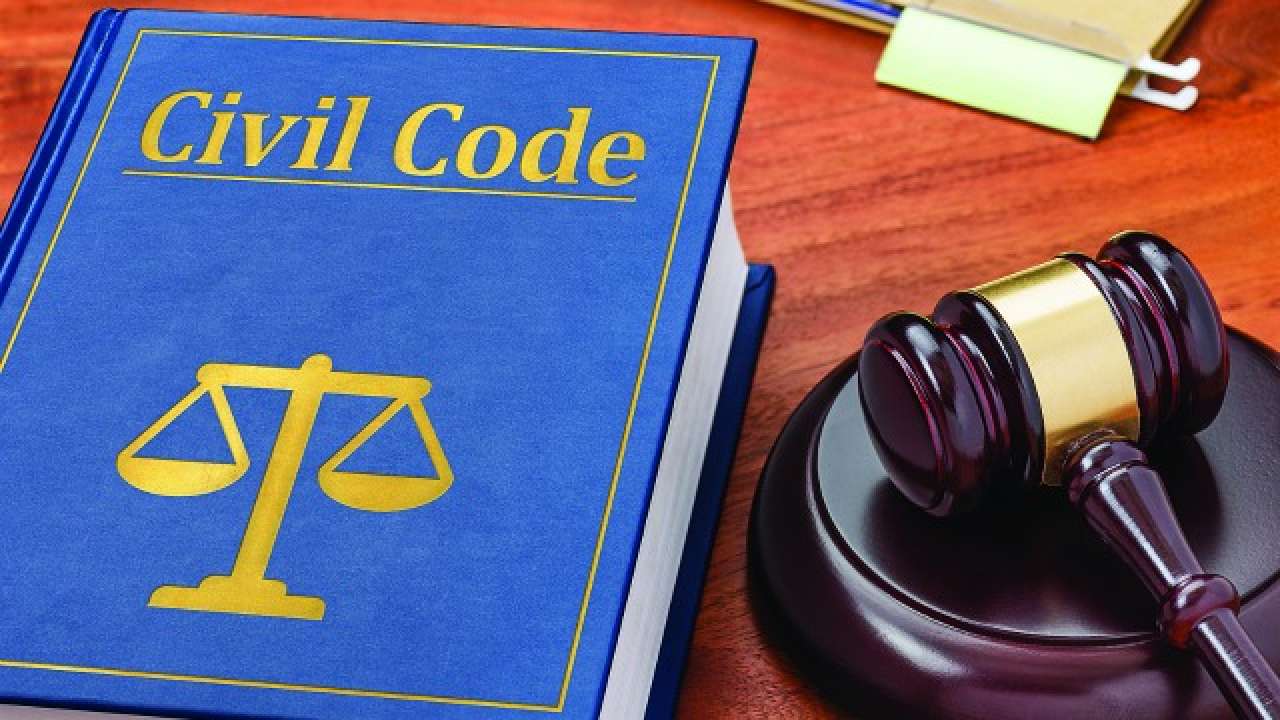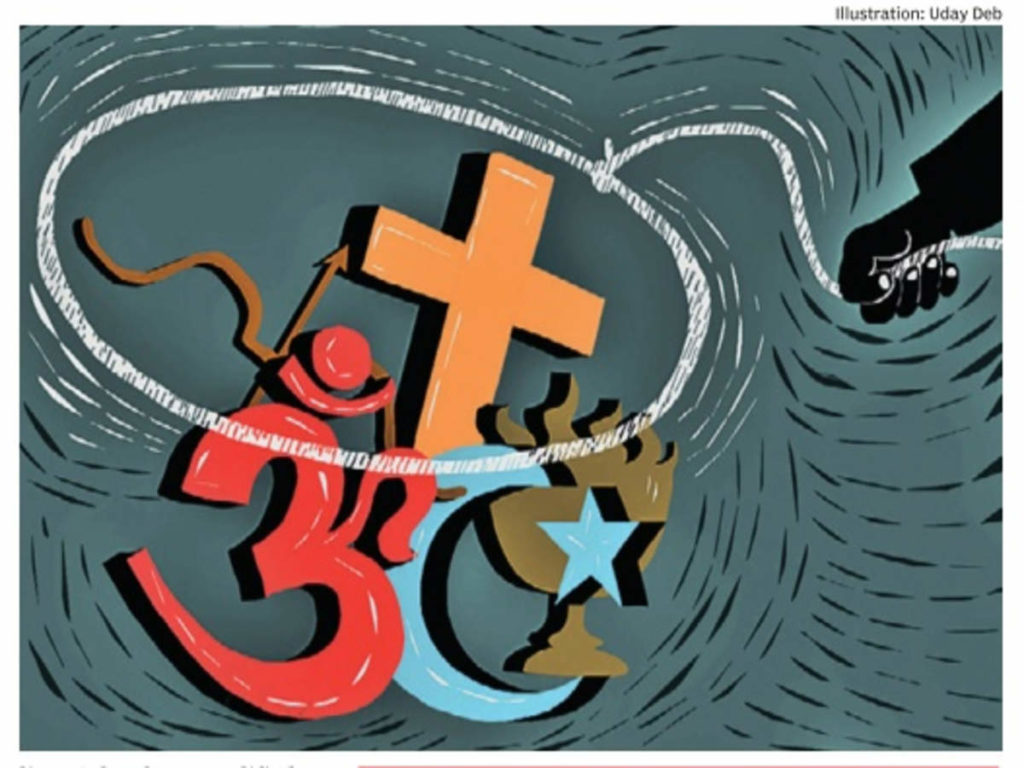This article talks about the concept of uniform civil code in Goa and its legal dimension. Uniform Civil Code is examined with its legal perspective and theories. We also further discuss why other states should implement the Uniform Civil Code and why there is a need to bring in uniform laws in India.
Introduction
India is a diverse country with different personal laws regulating different religions. Religion has always been an essential part of our country since ancient times. Different personal laws co-existed with the concept of secularism. Through the 42nd amendment, 1976, the word ‘secular’ was included in the preamble. According to Articles 25 and 26, people will be given the freedom to follow any religion. Different personal laws govern different personal religions but the problem arises where there are discrepancies between different religions. Therefore, under Article 44 of the Indian constitution, the concept of uniform civil code is given which means a uniform personal law for all citizens of the country. The concept of uniform civil code was included as a directive principle of state policy and over the 73 years, it has not been implemented in the whole of India. It came forward in the case of Shah Bano v Union of India, 1985, where the Supreme Court recommended that a uniform civil code should be set up. Goa is the only state with a uniform civil code that governs all the citizens alike irrespective of their religion.
Historical Background

The concept of the Uniform civil code can be traced back to colonial rule. In 1840, a uniform law was enacted by the Britishers for crimes, evidence, and annexures. However, the personal laws of Hindus and Muslims were deliberately left unattended, because of the apprehension of large opposition. Britishers applied a different policy in the case of personal laws to ensure that the religious communities should be ruled according to their respective personal laws. During the constituent assembly, Dr. B.R. Ambedkar, the founding father of the Indian constitution recommended a uniform civil code to be included initially in Article 35 of the Constitution of India, 1949. However, he mentioned that it should be voluntary. Consequently, under Article 44 of the Constitution of India, they included the UCC in the Directive Principles of State Policy.
Uniform Civil Code And The Personal Laws
Personal laws govern marriage, succession, maintenance, and divorce in India since the colonial period. Different personal laws govern different religions. Personal laws apply to only their respective religion based on religion, caste, or faith. Personal laws were mainly framed for Hindu and Muslim citizens.
Hindu Personal law
Hindu personal law applies to Hindus, Sikhs, Jains, and Buddhists. There are various sources of Hindu law like Sruti, Smritis, or Dharmasastha, customs, and Commentaries. Hindu personal laws were discriminatory and show the patriarchal nature of Indian society. Hindu personal laws are divided into four acts:
- The Hindu Marriage Act, 1955
- The Hindu Succession Act, 1956
- The Hindu Minority and Guardianship Act, 1956
- The Hindu Adoption and Maintenance Act, 1956
- The Hindu Marriage Act, 1955
The Hindu Marriage Act, 1955 was intended to secure the rights of marriage for the bride and groom. This act is binding to any person who is Hindu, Jain, Sikh, and Buddhist and is not a Muslim, Christian, Parsi or Jew and is governed by some other law. This law is binding to any person who is Hindu by Birth or Hindu by Religion.
- The Hindu Succession Act, 1956
The Hindu Succession Act, 1956 is an Act of the Parliament of India enacted to amend and codify the law relating to intestate or unwilled succession, among Hindus, Buddhists, Jains, and Sikhs. The Act lays down a uniform and comprehensive system of inheritance and succession into one Act.
- The Hindu Minority and Guardianship Act, 1956
The Hindu Minority and Guardianship Act,1956 was meant to enhance the Guardians and Wards Act of 1890, not serve as its replacement. This act specifically serves to define guardianship relationships between adults and minors, as well as between people of all ages and their respective property.
- The Hindu Adoption and Maintenance Act, 1956
The Adoptions and Maintenance Act, 1956 deals with the legal process of adopting children by a Hindu adult, and with the legal obligations of a Hindu to provide “maintenance” to various family members including their wife or parents, and in-laws.
Muslim Personal Law
In Muslim personal law, a man is allowed to marry four times whereas the women cannot and if they do, they are treated as unchaste and impure. Muslim personal laws are based on religious texts. Muslim Personal laws are still governed by their specific community law i.e., the Shariat Act. Some of the Muslim personal laws are as follows:
- Wakf Act, 1913
- Shariat Act, 1937
- The Dissolution of Muslim Marriage Act, 1939
- Wakf Act, 1913
The Waqf Act, 1995 was enacted and implemented by the Indian Government to overcome all the prior issues and to deliver comprehensive legislation. The Waqf Act, 1995, was enacted and became effective on 22nd November 1995 for a better administration and supervision of waqfs and also the establishment of central waqf council and state waqf boards.
- Shariat Act, 1937
All the Muslims in India are governed by the Muslim Personal Law (Shariat) Application Act, 1937. This law deals with marriage, succession, inheritance and charities among Muslims. It does not apply to Muslims who married under the Special Marriage Act, 1954.
- The Dissolution of Muslim Marriage Act, 1939
The dissolution of the Muslim Marriage Act, 1939 is an act to consolidate and clarify the provisions of Muslim Law relating to suits for dissolution of marriage by women married under Muslim Law.
Uniform Civil Code In Goa
Goa is the only state in India that has a uniform civil code. Goa has a common family law with the same law related to marriage, divorce, succession. In 1961, Goa became a part of India by the Goa Daman & Diu Administration Act, 1962. In 1867, the Portuguese Civil Code was authorized by the Parliament of India. It was authorized on the condition that necessary amendments can take place from time to time. The Portuguese Civil Code, 1867 applies to all the Goans living in the state irrespective of their religion. Some of the main provisions of the Portuguese Civil Code, 1867 are as follows:
- Goa Civil Code provides that marriage is a civil contract.
- Registration of marriages is made compulsory under the Goan Code
- Equal property rights for both sons and daughters are given under the code.
- Parents are not entitled to disinherit their children entirely. Half of the property is the minimum requirement that is to be passed on to the children.
- The Goan code allows for a prenuptial agreement which can alter the ratio of the distribution of assets.
The Special Marriage Act was enacted in India to govern the marriages of two people from different religions. However, in Goa, Muslim men whose marriages are registered do not have the right to polygamy. The property and wealth owned by each spouse are equally divided amongst the spouses during the marriage. In the case of divorce, each spouse is entitled to half of the property and in the case of death of both the spouses, the property is equally divided amongst the surviving members.
Uniform Civil Code And Secularism

India is a secular country which means there is no state religion. The state does not operate on anyone particular religion and shall not discriminate on the ground of religion. The process of secularization is connected with the goal of a uniform Civil Code like a cause and effect. In the case of S.R. Bommai vs Union of India, it was held that religion is a matter of individual faith and cannot be mixed with secular activities and can be regulated by the State by enacting a law. Articles 25 and 26 of the Indian Constitution guarantee freedom of religion and freedom to manage religious affairs. The Uniform civil code is not opposed to secularism or Article 25 and 26 of the Constitution of India. It says that religion, customs, and personal laws can prevail. The purpose of a uniform civil code is not to interfere with the customs and traditions. The basic purpose is to provide equality, which should be given to every citizen of India.
Should Other States Implement The Uniform Civil Code
Other states should also implement Uniform Civil Code because of the following point:
- To address personal laws that constitute a loophole in the legal system
Personal laws are biased toward the upper-class patriarchal conceptions of society in all religions. The existing personal laws are also not solemn, they need to be relooked as the laws in themselves, lack uniformity. Uniform Civil Code is a secular law, which is above all private laws of any religion or caste.
- To ensure that all citizens have an equal status
Uniform Civil Code serves as a savior as it brings everything under one roof and assists in ensuring greater equity. It also helps in streamlining the legislative and judicial processes. There is an urgent need to bring equal laws in the areas of marriage, inheritance, family, and succession.
- To address the gender disparity produced by specific religious laws
Personal laws show the patriarchal nature of Indian society. Men are usually accorded superior special status in succession and inheritance affairs under all personal laws. Uniform Civil Code eliminates these disparities and contributes to the improvement of women’s conditions in India.
- To aid in the integration of India
Uniform Civil Code contributes to the unification of all Indians, regardless of caste, religion, or tribe, under a single national civil code of conduct. Religious sects receiving preferential status would be eliminated with a consistent civil code.
Landmark Judgements
Sara Mudgal vs Union of India, 1995
In this case, the Supreme Court of India directed the Ministry of Law and Justice to reflect the steps taken and efforts made, by the Government of India, towards securing a “uniform civil code” for the citizens of India.
Pannalal Bansilal Patil vs State of Andhra Pradesh, 1996
In this case, the Supreme Court of India held that a uniform law, though is highly desirable, enactment thereof in one go perhaps may be counter-productive to unity and integrity of the nation. In a democracy governed by rule of law, gradual progressive change and order should be brought about. Making law or amendment to a law is a slow process and the legislature attempts to remedy where the need is felt most acute.
Mohd. Ahmed Khan vs Shah Bano Begum and Ors, 1985
In this case, the Supreme Court of India held that Muslim women are entitled to maintenance under Section 125 of the Code of Criminal Procedure, 1973 and further ruled that a uniform civil code will help the cause of national integration by removing disparate loyalties to laws which have conflicting ideologies and directed the Government to enact a Uniform Civil code.
John Vallamattom and Ors. vs Union of India, 2003
In this case, the Supreme Court of India held that there is no necessary connection between religious and personal law in a civilized society. It is no matter of doubt that marriage, succession, and the like matters of a secular character cannot be brought within the guarantee enshrined under Articles 25 and Article 26 of the Constitution. Any legislation which brings succession and the like matters of secular character within the ambit of Articles 25 and 26 is suspect.
Lily Thomas, Etc. vs Union of India & Ors., 2000
In this case, it was held that there is a necessity for a Uniform Civil Code. The time was yet not ripe and the issue should be entrusted to the Law Commission which may examine the same in consultation with the Minorities Commission. The desirability of enacting the Uniform Civil Code was incidentally made in this case.
Conclusion
Goa is the only state with a uniform civil code that governs all the citizens alike despite their religion. It has been suggested by the judiciary as well as the legislature on several instances for the implementation of the uniform civil code. Uniform Civil Code is not violative of Articles 25 and 26 of the Constitution. The UCC in Goa was successful due to the Portuguese laws already prevailing for several years. The uniform laws in one state do not guarantee success in all the other states, given the religious and cultural diversities that exist in different states. According to my opinion, Uniform Civil Code should be implemented in every state in India.
Frequently Asked Question (FAQs)
What is the Uniform Civil code?
Uniform Civil Code is a different set of laws that mainly governs all the personal matters of the citizens of India without creating any discrimination or irrespective of religion to ensure the fundamental rights and Constitutional rights of the citizens of India.
Is UCC applicable in Goa?
Goa is the only state in India that has a uniform civil code regardless of religion, gender, caste. Goa has a common family law.
Why India needs a Uniform Civil Code?
Uniform Civil Code is a secular law, which is above all private laws of any religion or caste. The existing personal laws are also not solemn, they need to be relooked as the laws in themselves, lack uniformity.
Why was held in the Shah Bano Begum case?
In this case, the Supreme Court of India held that Muslim women are entitled to maintenance under Section 125 of the Code of Criminal Procedure, 1973 and further ruled that a uniform civil code will help the cause of national integration by removing disparate loyalties to laws which have conflicting ideologies and directed the Government to enact a Uniform Civil code.
What are the main provisions of the Portuguese Civil Code, 1867?
Some of the main provisions of the Portuguese Civil Code, 1867 are – Goa Civil Code provides that marriage is a civil contract, registration of marriages is made compulsory under the Goan Code. There are equal property rights for both sons and daughters are given under the code. Parents are not entitled to disinherit their children entirely. Half of the property is the minimum requirement that is to be passed on to the children.
What was held in the S.R. Bommai vs Union of India case?
In this case, it was held that religion is a matter of individual faith and cannot be mixed with secular activities and can be regulated by the State by enacting a law.
